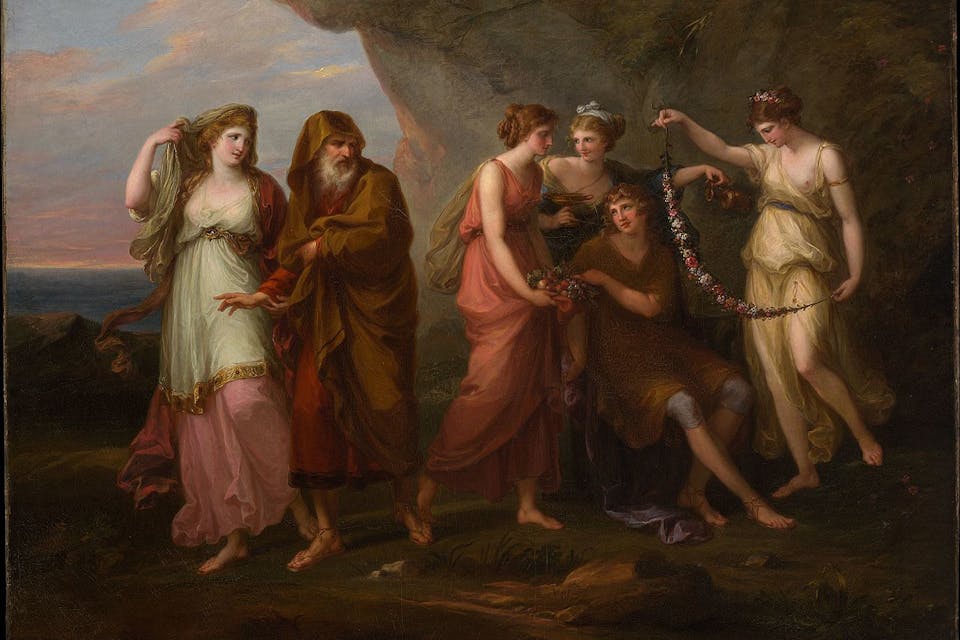
June 2, 2022
The Molten Flow of Primordial Chaos, Agitating the Chests of Men—or Not
The language of Homer delights in illuminating the world at length. The language of the Bible, by contrast, is compact, but fraught with the agitated flow of emotions.
This essay is the last in a six-part series by Jacob Howland on Homer and the Hebrew Bible. Historians of Western intellectual culture sometimes compare “Jerusalem,” or the biblical traditions that erupt into history at Sinai, with “Athens,” the city where Socrates, Plato, and Aristotle sought human wisdom through the exercise of the human mind. In this series, Howland invites a different comparison. Rather than comparing later prophets to philosophers, he looks back at yet earlier cultural cornerstones set at the very foundations of Hebraic and Greek civilizations.—The Editors
In his landmark book Mimesis: The Representation of Reality in Western Literature (1946), the great literary scholar Erich Auerbach devoted the first chapter, “Odysseus’s Scar,” to analyzing some fundamental stylistic differences between the Homeric epics and the Hebrew Bible. The Homeric style, he wrote, delights in the rich particularity of the world; but, behind its uniformly illuminated “foreground,” little transpires. By contrast, the language of the Bible is dense and compact but positively “fraught with background”; beneath its surface, one senses the agitated flow of the characters’ emotions. Similarly, while the passage of time affects Homer’s heroes only outwardly, God actively “bends and kneads” the Bible’s characters. Odysseus does not seem to develop, but “what a road, [and] what a fate, lie between Jacob who cheated his father out of his blessing and the old man whose favorite son [Joseph] has been torn to pieces by a wild beast!”
Auerbach is perhaps too dazzled by the foreground of the Homeric epics to do justice to their own species of fraught background. A suggestion of Nietzsche’s in The Birth of Tragedy—namely, that the shining, crisp, clear world of the Iliad and the Odyssey was a beautiful illusion that the Greeks needed in order to endure the terror and horror of existence—points us in a better direction. That terror—the molten flow of primordial Chaos, agitating the chests of men—is the deepest, darkest background of Homer’s poetry. To control its eruptions, and to direct those that are necessary toward some enduring common good (volcanic soil, after all, makes for lush farmland), is the psychological and political problem Odysseus confronts in the Odyssey.